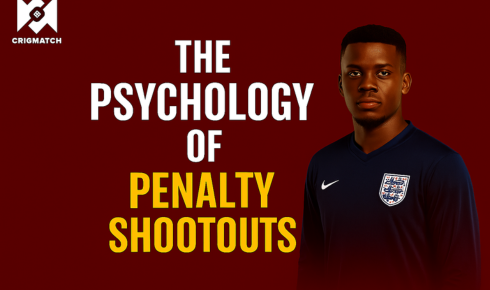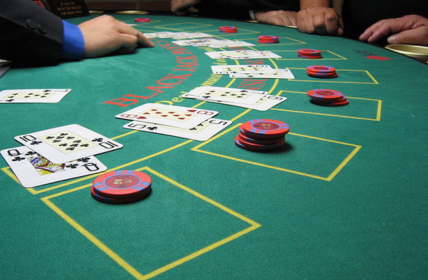
Penalty shootouts are among the most dramatic moments in football. A game lasting 120 minutes can come down to a few kicks from the spot, where mental strength often outweighs physical ability. While technical skill matters, history has shown that psychology plays the decisive role in determining winners and losers.
The Weight of Pressure
Unlike open play, penalty shootouts isolate a player in front of millions of eyes, with no teammates nearby to share responsibility. The pressure is magnified by:
- High Stakes: The outcome often decides championships, trophies, or elimination.
- Expectation: Players are expected to score; missing can lead to long-lasting criticism.
- Fear of Failure: The thought of being remembered for a miss can be overwhelming.
Psychologists describe this as a “fight or flight” moment, where heart rate spikes, breathing quickens, and focus narrows. Handling this adrenaline surge is the true test of composure.
Confidence and Body Language
Research has shown that confident body language can increase the chances of scoring. A player walking slowly, avoiding eye contact, or showing hesitation often signals nervousness. In contrast, purposeful strides and steady eye contact with the goalkeeper project control.
Interestingly, goalkeepers also use psychological tricks—gesturing, delaying, or moving along the line—to unnerve the kicker. These subtle exchanges form a battle of nerves before the ball is even struck.
The Role of Goalkeepers
For goalkeepers, penalty shootouts are opportunities rather than burdens. Expectations are heavily skewed towards the taker, meaning keepers have less pressure and more freedom to take risks.
Psychological strategies used by goalkeepers include:
- Mind Games: Delaying the shot or pointing to one corner to force doubt in the kicker’s mind.
- Studying Patterns: Many keepers research player tendencies—preferred foot, usual angles, and common choices under pressure.
- Presence: A keeper’s stance, movements, and even pre-kick rituals can make the goal appear smaller.
Practice vs. Reality
Many teams practice penalties in training, but replicating the psychological environment of a real shootout is nearly impossible.
- Training: Controlled setting, familiar faces, and no consequences for failure.
- Matchday: Unpredictable crowd noise, tournament stakes, and immense emotional stress.
The key lies not just in practicing the technique but also in simulating pressure. Sports psychologists recommend visualization techniques, breathing exercises, and rehearsing under crowd noise to prepare mentally.
Memory and Redemption
For some players, penalties become defining career moments. Roberto Baggio’s miss in the 1994 FIFA World Cup final remains iconic, just as Andrea Pirlo’s calm chip in Euro 2012 is remembered for confidence.
The emotional weight of a miss can haunt players for years. Yet, redemption is equally powerful. Cristiano Ronaldo, Lionel Messi, and others have bounced back from crucial misses to later score decisive penalties in major tournaments.
This cycle of failure and recovery highlights how resilience is just as important as skill in football psychology.
Team Psychology and Order of Takers
Penalty shootouts are individual actions within a team context. Coaches often debate the ideal order of takers.
- First Kicker: Needs confidence to set the tone.
- Middle Takers: Maintain stability and momentum.
- Final Kicker: Often chosen as the most reliable, but sometimes the pressure becomes overwhelming.
Team morale also matters. Support from teammates after a miss can reduce emotional damage, while criticism or blame can amplify stress. Successful teams often foster unity, reminding players that the result is collective, not individual.
Cultural Differences in Approach
Different footballing nations approach penalties with unique philosophies.
- Germany: Known for discipline and preparation, German teams historically perform strongly in shootouts.
- England: Long carried the stigma of poor penalty performance, with heavy emphasis on “curse” narratives in the media.
- South American Teams: Often approach penalties with flair, confidence, and psychological bravado.
Cultural attitudes towards pressure, failure, and mental preparation influence how players approach shootouts at every level.
The Role of Sports Psychology
Modern football increasingly embraces sports psychologists to prepare players for these high-stress moments. Techniques include:
- Visualization: Imagining a successful penalty before taking it.
- Routine Building: Consistent pre-kick rituals to calm nerves.
- Breathing Exercises: Slowing heart rate and improving focus.
- Positive Reinforcement: Building confidence through repeated mental rehearsal.
By normalizing psychological preparation, teams are better equipped to handle the stress of shootouts.
Final Thoughts
Penalty shootouts are not just tests of technique—they are battles of psychology. The player who can silence the noise, control their nerves, and trust their preparation often emerges victorious. Goalkeepers who embrace pressure, study opponents, and use subtle tactics can turn the odds in their favor.
In the end, penalty shootouts capture the essence of football drama: unpredictability, human resilience, and emotional intensity. They are reminders that beyond tactics and skills, the mind is the ultimate decider.
For fans eager to explore more insights and follow global football stories, Cricmatch and Cricmatch247 provide reliable gateways to stay connected with the game’s biggest moments and the psychology behind them.




